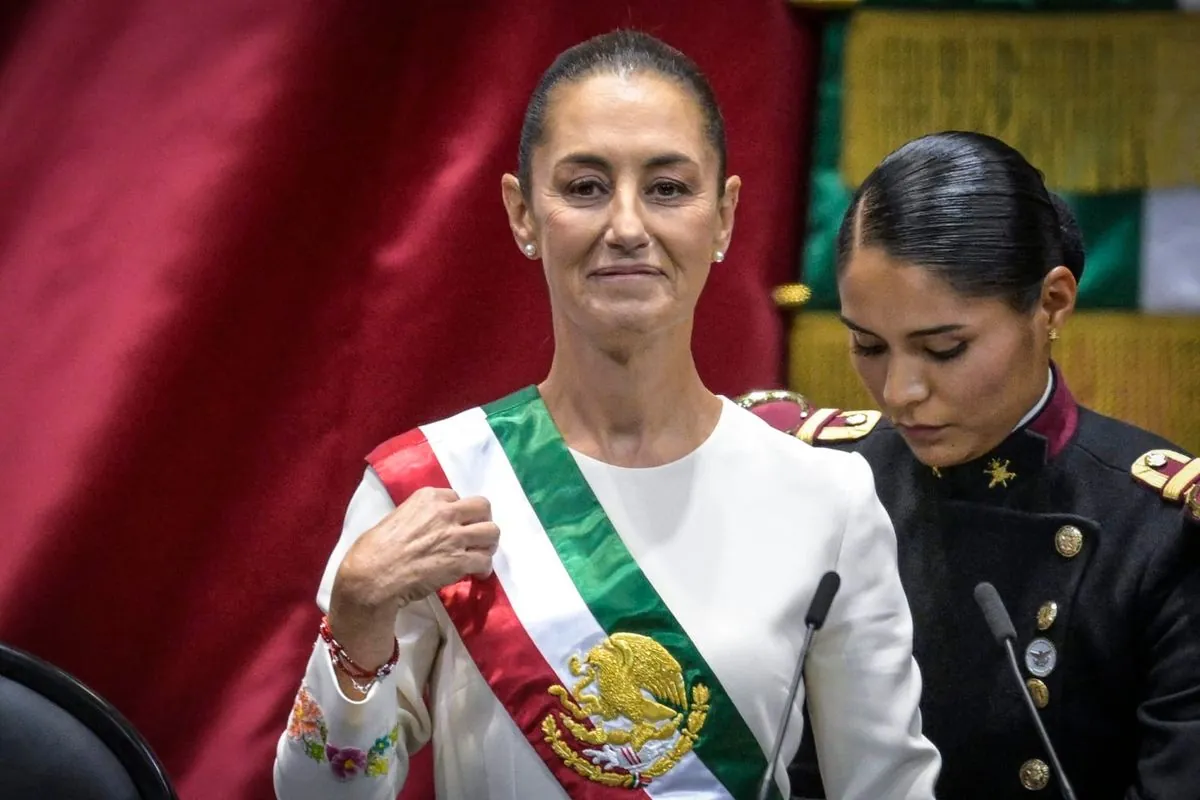On December 1, 2024, Claudia Sheinbaum made history as Mexico's first female president, marking a significant milestone in the country's political landscape. In her inaugural address, Sheinbaum emphasized her commitment to economic growth and poverty alleviation, while also highlighting the importance of women's representation in government.
Sheinbaum's ascension to the presidency comes at a time when Mexico faces numerous challenges. The country's economy is projected to grow by a modest 1.2% in 2025, reflecting ongoing economic hurdles. Additionally, Sheinbaum must address concerns about the rule of law and institutional integrity following controversial judicial reforms implemented by her predecessor, Andrés Manuel López Obrador.
Despite these challenges, Sheinbaum has already signaled potential departures from López Obrador's policies. In a speech at Mexico City's Zócalo Square, she announced an ambitious goal to generate 45% of Mexico's energy from renewable sources by 2030, a significant increase from the 20% recorded in 2023. This commitment to clean energy stands in contrast to the previous administration's approach, which saw Mexico's energy mix become more reliant on fossil fuels.
Sheinbaum's cabinet appointments reflect Mexico's progress in gender parity, with women occupying half of the positions. This achievement is mirrored across various levels of government, including the leadership of the Banco de México and the Supreme Court.
In her first press briefing, Sheinbaum introduced a new national security strategy focusing on intelligence-led approaches to combat crime, particularly in ten high-violence municipalities. This strategy differs from López Obrador's "hugs, not bullets" approach, which had been criticized for its limited effectiveness in addressing Mexico's security challenges.
On the international front, Sheinbaum's administration has expressed interest in diversifying Mexico's trade relationships. While 83% of Mexico's current trade is with the United States, officials have indicated plans to expand economic ties with other Latin American countries, particularly Brazil.
Meanwhile, in other regional developments, the United Nations Security Council has extended its endorsement of a Kenyan-led multinational security mission in Haiti for one year. The mission, which currently has a limited presence of about 400 Kenyan police officers and two dozen Jamaican personnel, faces funding challenges and calls for transformation into an official UN peacekeeping operation.
In Guatemala, U.S. anti-corruption sanctions against Russian-backed nickel mines have had unintended economic consequences, leading to job losses and increased migration pressures. The situation highlights the complex interplay between international sanctions and local economic realities.
The European Union's relationship with Latin America is also evolving. The upcoming transition from Josep Borrell to Kaja Kallas as EU foreign policy chief may bring changes to the EU's approach to the region. Kallas, with her background in Estonian politics and focus on countering Russian influence, represents a shift from Borrell's Spanish-influenced perspective on Latin American affairs.
At a recent security conference in Rio de Janeiro, European and Latin American officials discussed the importance of maintaining strong ties. Jonatan Vseviov, Secretary-General of Estonia's foreign ministry, emphasized the need for cooperation on issues such as clean industrial development and trade, particularly the potential EU-Mercosur trade agreement.
As Mexico enters this new chapter under Sheinbaum's leadership, and as regional dynamics continue to evolve, the coming months will be crucial in shaping the future of Latin American politics and international relations.
"It's time for women. Indigenous women, domestic workers, great-grandmothers who did not learn to read or write because school wasn't for girls – this moment belongs to all of them."
